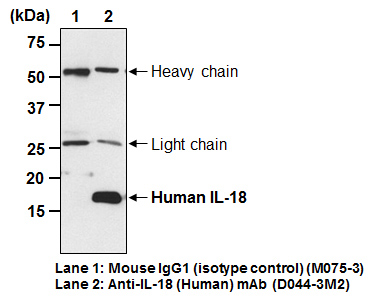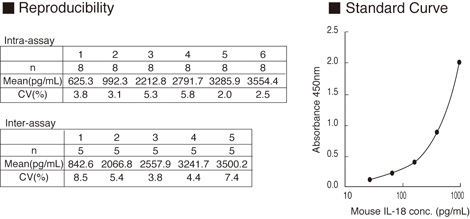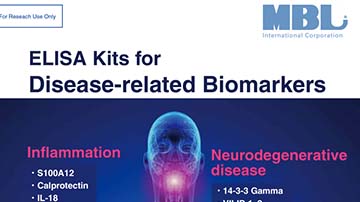| Description/Background | Interleukin 18 (IL-18) is a 18 kDa cytokine which identified as a costimulatory factor for production of interferon-γ (IFN-γ) in response to toxic shock and shares functional similarities with IL-12. IL-18 is synthesized as a precursor 24 kDa molecule without a signal peptide and must be cleaved to produce an active molecule. IL-1 converting enzyme (ICE, Caspase-1) cleaves pro-IL-18 at aspartic acid in the P1 position, producing the mature, bioactive peptide that is readily released from the cells. It is reported that IL-18 is produced from Kupffer cells, activated macrophages, keratinocytes, intestinal epithelial cells, osteoblasts, adrenal cortex cells and murine diencephalon. IFN-γ is produced by activated T or NK cells and plays critical roles in the defense against microbiral pathogens. IFN-γ activates macrophages, enhances NK activity and B cell maturation, proliferation and Ig secretion, induces MHC class I and II antigens, and inhibits osteoclast activation. IL-18 acts on T helper type-1 (Th1) T cells and in combination with IL-12 strongly induces them to produce IFN-γ. Pleiotropic effects of IL-18 has also been reported, such as, enhancement production of IFN-γ and GM-CSF in peripheral blood mononuclear cells, production of Th1 cytokines, IL-2, GM-CSF and IFN-γ in T cells, enhancement of Fas ligand expression by Th1 cells. |
|---|












